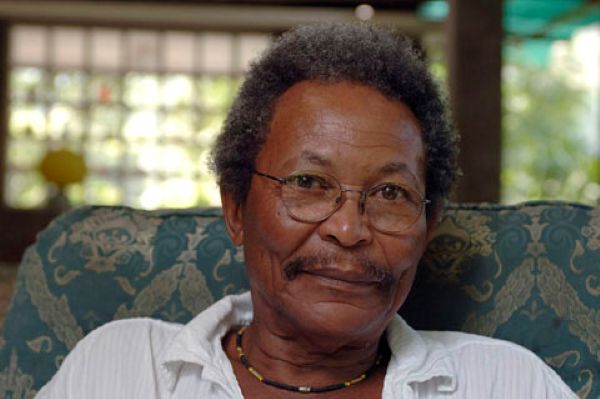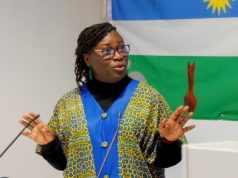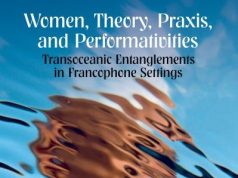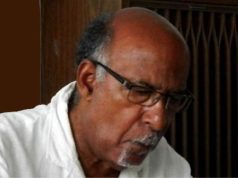

The Earl Lovelace Manuscripts—1963-1999, housed at the Alma Jourdan Library, The University of the West Indies-St. Augustine in Trinidad and Tobago—has been officially inscribed on the UNESCO Memory of the World Regional Register for Latin America and the Caribbean. The announcement was made during the program’s annual regional meeting held recently in Lima and Cusco, Peru. This collection includes drafts, notes, and manuscripts for his novels like The Dragon Can’t Dance and The Wine of Astonishment, as well as some unpublished works.
The UNESCO site describes:
Trinidad and Tobago: The Alma Jourdan Library. The University of the West Indies – Earl Lovelace Manuscripts, 1963-1999.
Earl Lovelace, born in Trinidad and Tobago on 13 July 1935, spent most of his life in the twin-island state pursuing a writing career that resulted in an extensive and distinguished body of work, including novels, short stories, poetry, plays and essays.
Here is a short biographical note from the Ministry of Sport and Community Development (Trinidad & Tobago):
Earl Lovelace Earl Lovelace, novelist, playwright and short-story writer, was born in Toco, Trinidad in 1935 and spent his childhood in Tobago and Port of Spain. His first job was with the Trinidad Guardian newspaper. Later, he joined the Civil Service, serving first in the Forestry Department and then in the Department of Agriculture.
Mr. Lovelace has an MA in English from Johns Hopkins University and is a former Guggenheim Fellow. He has worked as a lecturer at the University of the West Indies and as a visiting novelist/writer-in-residence in the United States and England. In 1988, Lovelace received the Trinidad and Tobago Chaconia Medal (Gold) and, in 2002, an Honorary Doctorate of Letters from the University of the West Indies, St. Augustine. His first novel, While Gods Are Falling, won the British Petroleum Independence Literary Award. It was published in 1965 and was followed by The Schoolmaster in 1968. From 1974-1983, the Lovelace family lived in Matura, a rural area in northeast Trinidad. Lovelace wrote and directed several plays for the community’s participation in the national Best Village Programme.
His published plays include The New Hardware Store; My Name is Village, and Jestina’s Calypso. His acclaimed novel, The Dragon Can’t Dance, was published in 1979. It has been translated into over five languages and produced as a play in several countries. This novel engages the arts of rebellion—Carnival, calypso and steelpan—in the urban community of Laventille. Lovelace has also produced a children’s book, Crawfie the Crapaud; a book of essays, Growing in the Dark; and a short story collection, A Brief Conversion and Other Stories.
Lovelace’s novel Salt, winner of the Commonwealth Writers Prize in 1997, traces the history of rebellion in the social and political history of Trinidad and Tobago. His latest novel, Is Just a Movie, released in October 2010, explores a changing society in the aftermath of Black Power in 1970. It was the winner of the 2011 Grand Prize for Caribbean Literature by the Regional Council of Guadeloupe and the 2012 OCM Bocas Prize for Caribbean Literature. He lives and works in Cascade, Trinidad.
For more information, see https://www.unesco.org/en/articles/29-new-inscriptions-unescos-memory-world-regional-register-latin-america-and-caribbean and https://mscd.gov.tt/earl-lovelace/
Also see https://libraries.sta.uwi.edu/ajl/index.php/caribbean-resources/43-the-collections and https://www.peepaltreepress.com/authors/earl-lovelace
See 2022 interview at https://smallaxe.net/sxsalon/interviews/i-never-looked-down-i-looked-across and a 2011 interview with B.C. Pires at http://caribbeanreviewofbooks.com/crb-archive/25-january-2011/we-are-on-the-verge-of-listening/
[Photo above by Stefan Falke: Earl Lovelace. See http://caribbeanreviewofbooks.com/crb-archive/25-january-2011/we-are-on-the-verge-of-listening/.]
The Earl Lovelace Manuscripts—1963-1999, housed at the Alma Jourdan Library, The University of the West Indies-St. Augustine in Trinidad and Tobago—has been officially inscribed on the UNESCO Memory of the World Regional Register for Latin America and the Caribbean. The announcement was made during the program’s annual regional meeting held recently in Lima and Cusco,





